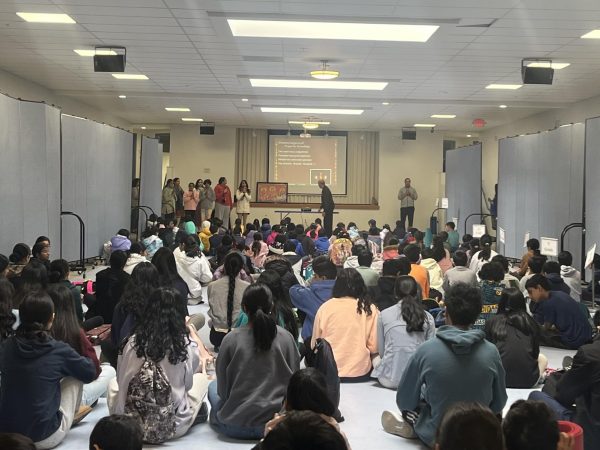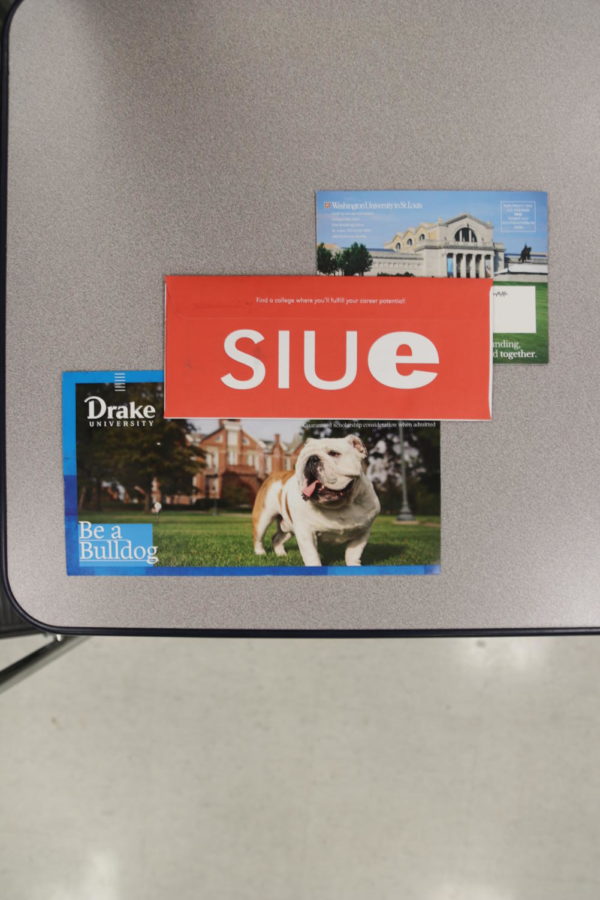Q&A: College Essay Writing Tips
Media by Jackson Estwanick
The Marquette Messenger asked Tyler Bradshaw, an Associate Director of Recruitment for Miami University, about tips and tricks on how to tackle the college essay.
On August 1 the Common App and Coalition App opened for students to begin applying to colleges. The Marquette Messenger asked Tyler Bradshaw, an Associate Director of Recruitment for Miami University, about tips and tricks on how to tackle the college essay.
Q: What are some common mistakes you find?
A: The big mistake with college essays is that students share information we could find with other parts of their college applications. One of the biggest mistakes I’ve seen made repeatedly is that students will take their activities list and put it in paragraph form. In reality, the essay should be a piece that is sharing new information about the student that we couldn’t find anywhere else in the application. I think students also try to write their essay like a traditional five-paragraph essay, but oftentimes schools are looking for creativity. They are looking for those students who can go outside the box and outside of their own comfort zone. I don’t see as many students taking those creative risks.
Q: How can students make their essays unique?
A: There are two different approaches. One is that you choose a very creative topic and you write a really strong essay. By creative topic, I mean something that is completely off the wall or you had a really unique and compelling story that you can tell. These are the students who have a unique background, have experienced a tragic event or have won a national award and have gone above and beyond in their school setting. The other option is choosing a more regular or everyday topic and writing about that topic in a very creative way. You can play with the stylistic components and maybe write as if you were writing a dialogue or diary entry.
Q: What are similar topics that are repeated and should be avoided?
A: We see a ton of essays about sports injuries. We also see a lot of essays about student activities like marching band or National Honor Society. You can still write those topics, but you are going to have to write your essay in a way that is out of the box to help you stand out. We also see students who write essays about people who have made a significant impact on them. The problem is that they share so much information about that person but not enough about themselves.
Q: How do you recommend students start the essay process?
A: The prompt I always give students to think about is this: if you were going to write a book about your life, what is the one story you would absolutely have to include about yourself to make that story complete? I think if students start from that place,they really start to think about the stories that stand out, not the ones that they think will impress a college. The other thing I tell students is oftentimes the essay is the closest thing they can get to the interview (for example, Miami University does not conduct interviews with our applicants). I think if you start from a place of interest and not a place of what will impress the college counselor, you will have a really strong essay.
Q: What are some tips and tricks on how to tackle the college essay?
A: First and foremost, you have to understand that this is one piece of a larger application. This is not the most important piece but it is also not the least important piece. It is one additional bit of information, but we spend a lot of time looking at your transcript, test scores, activities list and other included documents. They all work together to tell us who you are. I always tell students to take some creative risks because you have to set yourself apart from the rest of the applicant pool. It’s not necessarily the content that you choose, but how you write it. I also tell students to follow word limits. There is a reason space for the essay is limited because it keeps it manageable for us. I also tell students to write the essay far enough in advance that you have time to review it. Students should also let teachers, parents, staff members or peers read their essays to solicit feedback. For the students who might be stuck between a few topics, I always tell students to write multiple essays and then compare them when they are done. Finally, don’t try to do too much in your essay. You can’t possibly fit your whole life story within 650 words, but you can fit one story so stick with that.
Your donation will support the student journalists of Marquette High School. Your contribution will allow us to purchase equipment and cover our annual website hosting costs. You may become a PATRON by making a donation at one of these levels: White/$30, Green/$50, Blue/$100. Patron names will be published in the print newsmagazine, on the website and once per quarter on our social media accounts.

Sarah Harris, senior, is the Associate Editor for the Messenger and is also the Copy Editor for the Medallion, Marquette's yearbook. Sarah is involved...

Jackson Estwanick, senior, was the Executive Producer of MHSNews and the Messenger from 2018 to 2020. He also cadet taught Intro to Digital Media Production....







